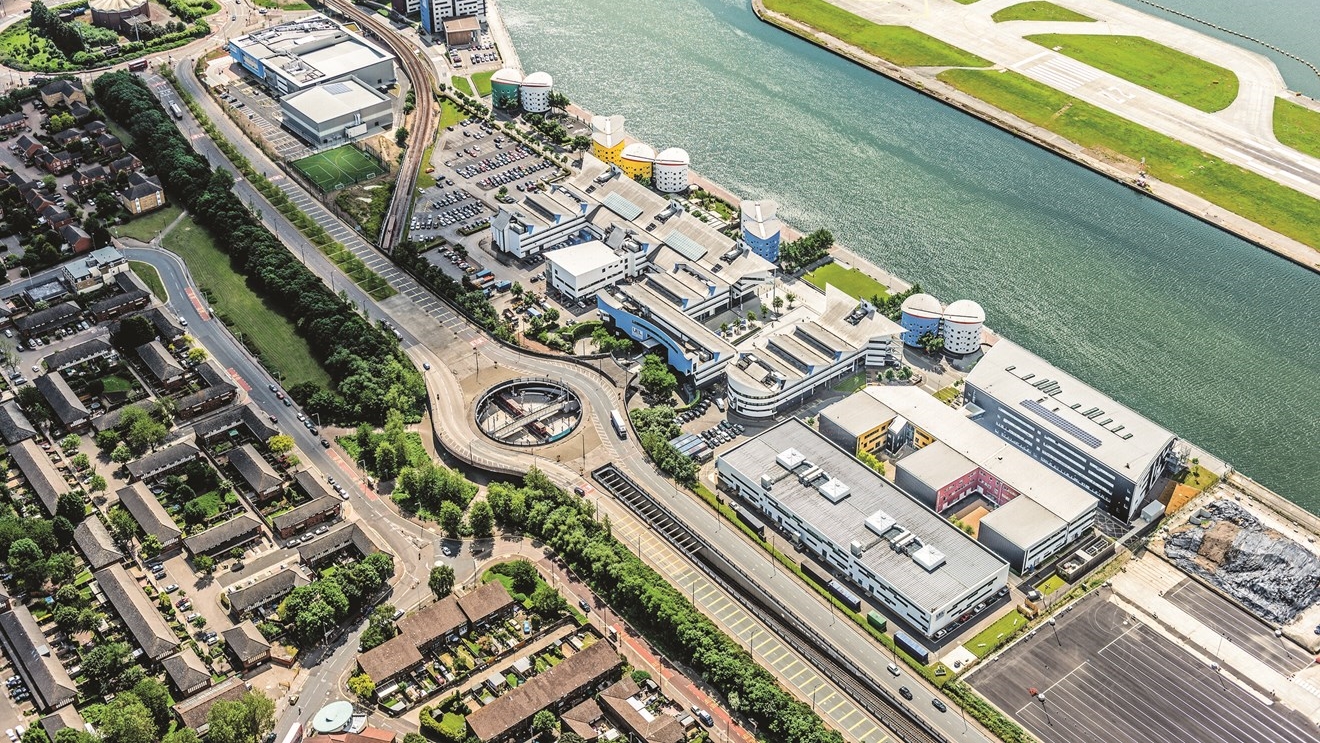The University of East London has established a strategic partnership with Siemens to collaborate on their net zero carbon aspiration to 2030, identifying opportunities to reduce overall energy use, drive the shift to renewable energy and transform its campuses in Docklands and Stratford.
The partnership has been underpinned by innovation, decarbonisation and digitalisation to transform the university’s campuses, not only with the aim to make its urban sites net zero carbon by 2030 but to enhance student and staff wellbeing, to foster inclusivity by creating new learning opportunities and to support a digital-first culture through the roll-out of intelligent technology.
To help UEL meet these ambitious targets, Siemens is now delivering improvement measures across the University to cut its energy consumption as well as engineering solutions for producing low carbon energy on-site and specifying and installing renewable generation infrastructure across the Dockland and Stratford campuses. In parallel, the University is working with Siemens to embed sustainability across the curriculum to allow students to develop the skills they need to succeed in a green economy. The partnership is also exploring the creation of a Living Lab for teaching and research.
Despite its space constraints as an urban university, the University of East London is leading the way in becoming a truly net-zero institution. The University has already acted on climate change by increasing biodiversity on its campuses and embedding sustainability into both its teaching and research. It has also engaged with local community partners on climate issues, working with councils across London to support infrastructure innovation.
With Siemens as its Strategic Partner, the University now wants to take its ambitions even further by becoming a blueprint for other urban net zero initiatives.
The main partnership areas
The net zero carbon roadmap identified four focus areas for UEL’s campuses: introducing renewable energy sources to campuses and reducing overall energy consumption; supporting sustainable enterprise; leveraging real-time energy data through a ‘Living Lab’ and nurturing a strong talent pipeline.
The first phase will immediately cut 10 percent of the University’s carbon emissions and reduce operational costs by installing LED lighting in all buildings and upgrading the University’s building management systems.
A second workstream will focus on engineering the design of sustainable energy technology – including solar panels installed on rooftops and in car parks, ground source or water source heat pumps fed by the Thames and electric vehicle charging solutions. The photovoltaics alone could provide the University with a significant amount of zero-carbon, zero-cost energy per year. The majority of this energy will be consumed on-site, with the remainder stored or exported to the grid.
During the second phase, Siemens will support UEL in its creation of an innovation hub for local green energy enterprises, giving students the opportunity to engage with the latest green technologies whilst on campus. UEL will also provide the opportunity for students to further strengthen their industry skills through mentoring and internships with Siemens.
The third workstream of the partnership will see the development of a ‘Living Lab’, to make the data captured across the campuses available to students and researchers. Live data can be stored on the Siemens MindSphere platform, accessible to the University’s researchers and partners anywhere in the world.
To support the energy transition in the wider East London area, the University and Siemens will explore pragmatic ways of introducing local-scale energy projects that make an immediate difference to local communities.
Committed to becoming a decarbonisation leader
“We are committed to becoming a national and global decarbonisation leader by considering the economic, social and environmental impact of everything we do,” comments Professor Amanda Broderick, Vice Chancellor and President, University of East London. “With our university-student-industry triple helix partnership approach, we are confident that we can achieve net zero in our publicly engaged and vibrant learning environment where everyone can succeed. The campus carbon transformation will give our students the opportunity to become the sustainability leaders of tomorrow. They will have access to the latest thinking in smart technology, to industry experience and mentorships and a vital edge in the jobs market.”
Faye Bowser, Head of Energy & Performance Services, Siemens adds: “Due to its urban setting in central London, the University of East London cannot allocate swathes of space for renewable generation. There is no greenfield space for additional energy generation, so the only way for it to evolve is through innovative technology. The urban campus poses a unique set of challenges; however, the University of East London is seizing the opportunity to be at the heart of the East London’s regeneration building on their legacy to pioneer futures and transform lives. We are excited to collaborate with them on their net zero journey and we’re proud to take this beyond decarbonisation to create social impact. The strong focus on partnership and community collaboration will stimulate the green economy in East London, as well as building a strong talent pipeline of graduates with a deep understanding of sustainability issues.”



